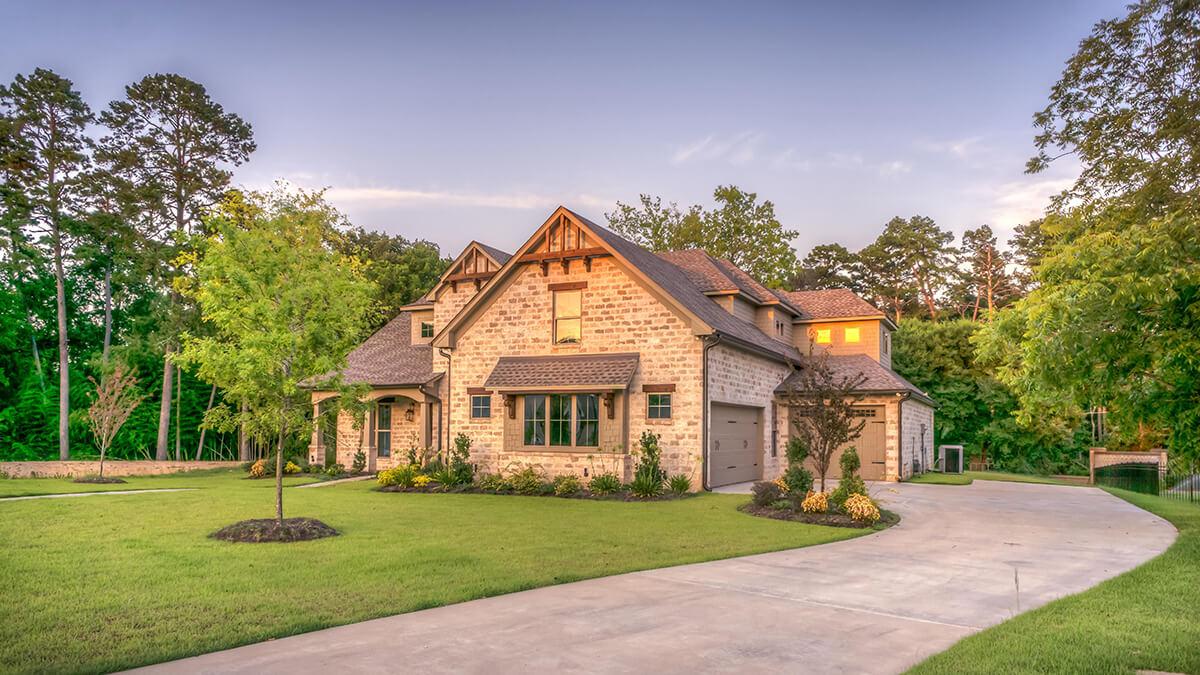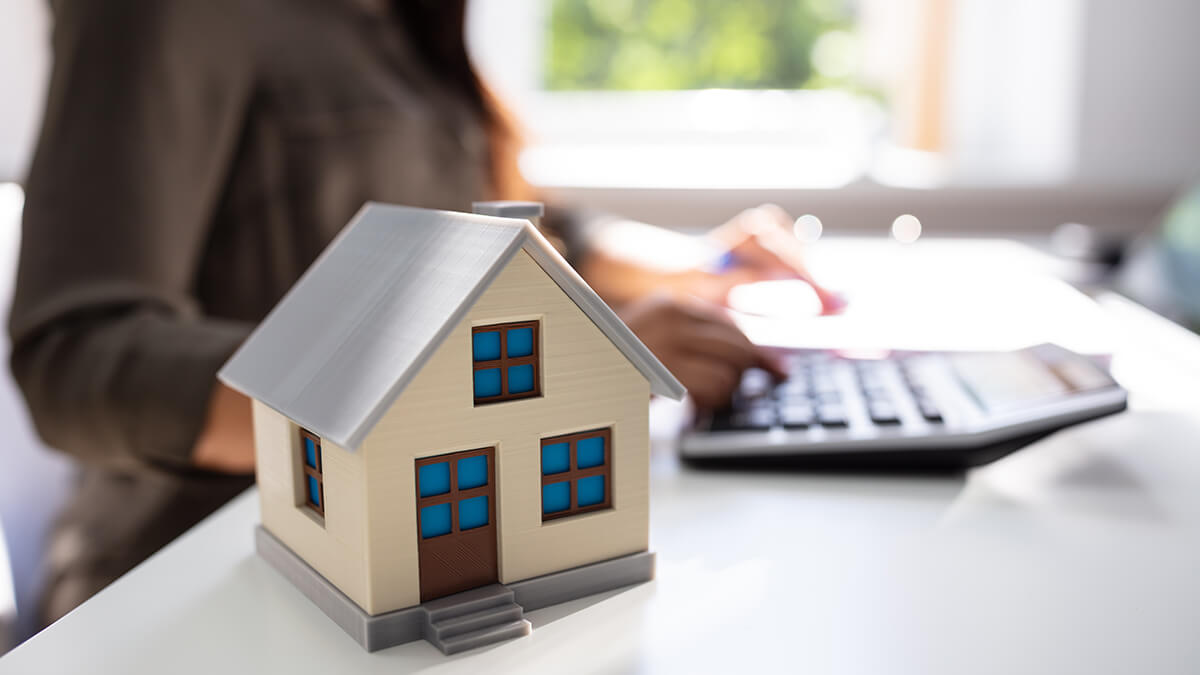Landscaping isn’t just about making a home look good—it can be a smart investment that boosts its value. But while strategic landscaping choices can significantly raise a property’s worth, not all upgrades are equal when it comes to return on investment (ROI). Small improvements may make a big difference, but elaborate or overly personal designs might not appeal to potential buyers.
Whether you’re planning to sell soon or just want to increase your home’s value over time, choosing the right landscaping projects matters. Simple, targeted upgrades can improve curb appeal and make your home more attractive, both for current enjoyment and for future resale value.
Thinking about landscaping for added value? At iBuyer.com, we can help you make the best decisions, offering expert guidance for a smooth home-selling experience that considers every upgrade you make.
Compare Cash Offers from Top Home Buyers. Delivered by Your Local iBuyer Certified Specialist.
One Expert, Multiple Offers, No Obligation.
Landscaping Increases Home’s Value?
The Role of Landscaping in Home Valuation
Landscaping does more than just add beauty to a home; it impacts its curb appeal, or the first impression people get when they see the property. This initial impression is powerful—buyers often make quick judgments based on a home’s exterior. A well-maintained yard with attractive plants, neatly trimmed hedges, and clean pathways can make a property look welcoming, cared for, and valuable right from the start.
Studies show that quality landscaping can increase a home’s value by up to 10-15%. This boost isn’t only financial; it also makes the property more memorable and appealing, which can help it sell faster. Landscaping upgrades are unique because they enhance both the homeowner’s daily experience and the home’s future marketability. For instance, features like a vibrant garden or an inviting patio offer immediate enjoyment while also appealing to potential buyers.
In short, landscaping can be a win-win: it benefits homeowners now and offers solid returns when it’s time to sell.
Types of Landscaping Improvements with High ROI
When it comes to landscaping, some upgrades deliver a higher return on investment than others. Here are the types of improvements that can add the most value to your home:
Front Yard Curb Appeal
First impressions start with the front yard. Simple changes like regular lawn maintenance, planting colorful flowers, and adding fresh mulch make a big impact without a big budget. These low-cost updates can immediately make the home look cleaner and more inviting.
Backyard Upgrades
Outdoor spaces are increasingly popular, especially as people look for areas to entertain or relax. Adding a deck, patio, or even an outdoor kitchen can greatly boost appeal. Buyers often appreciate these features because they see them as extensions of the home’s living space.
Planting Trees and Shrubs
Trees and shrubs provide both beauty and function. Not only do they add to the home’s visual appeal, but trees also offer shade, which can lower cooling costs in the summer. Additionally, mature trees are a sought-after feature among buyers, making this an upgrade that pays off in multiple ways.
Outdoor Lighting
Lighting can enhance the look of a property and improve safety. From pathway lights to uplighting for trees, outdoor lighting adds a touch of elegance and extends the usability of outdoor spaces into the evening. It’s a simple upgrade that makes a lasting impression.
Low-Maintenance Landscaping Options
Low-maintenance landscaping, such as native plants, drought-resistant plants, and low-water gardens, is increasingly popular with buyers. These options appeal to those looking for eco-friendly, low-upkeep outdoor spaces, helping you attract sustainability-focused buyers and reduce maintenance costs.
By choosing improvements like these, homeowners can add style, functionality, and value, making their properties more attractive to potential buyers while enjoying the benefits in the meantime.
Landscaping That Lowers Home Value
While thoughtful landscaping can increase a home’s worth, certain choices can actually detract from it. Here are a few landscaping decisions that may lower a property’s appeal—and value:
Overly Personal or High-Maintenance Designs
Unique and elaborate designs, like specialized gardens or rare plants, might reflect a homeowner’s taste but may not appeal to everyone. Buyers often prefer simple, low-maintenance landscapes over personalized setups that require extra care. Excessive water features, complex flower beds, or intricate pathways could seem overwhelming, especially to buyers who want easy upkeep.
Obstructive or Poorly Placed Trees
Large trees planted too close to the house or driveway can raise red flags for potential buyers. Roots can cause costly damage to foundations, driveways, and plumbing, while overhanging branches might lead to roof maintenance issues. It’s best to place trees with growth and safety in mind, allowing space between them and the home.
Crowded and Cluttered Plantings
Overcrowded landscapes can make the yard look smaller and harder to maintain. Excessive shrubbery or dense flower beds create a cluttered appearance and might even hide parts of the house. This not only reduces curb appeal but may also make the property look neglected rather than inviting.
High-Water-Need Plants in Dry Regions
In areas where water conservation is essential, planting thirsty plants can be a turn-off for eco-conscious buyers. High-water-need landscapes can look out of place and imply high maintenance costs, making a drought-tolerant, native garden a more attractive option in these regions.
Real estate professionals agree: keeping landscaping approachable, manageable, and buyer-friendly can help maintain—and even boost—a home’s value.
DIY vs. Professional Landscaping
When it comes to landscaping, homeowners often weigh the option of doing it themselves versus hiring a professional. Both approaches have their advantages, but it’s essential to consider the scope of the project and the desired outcome.
Benefits of DIY Landscaping
For homeowners on a budget or with a green thumb, DIY landscaping can be a satisfying option. Tasks like planting flowers, spreading mulch, or even installing basic lighting are manageable for many people and allow them to save on labor costs. DIY projects are perfect for small, cosmetic changes that still boost curb appeal without needing extensive skills or equipment.
When to Hire a Professional
For larger, complex projects—think outdoor kitchens, extensive patios, or intricate water features—it’s usually worth consulting a professional. These projects require expertise to ensure they’re safe, durable, and add real value. Pros also have access to the right tools, materials, and design insights that can make a space truly stand out. While hiring a professional involves upfront costs, it often leads to a higher-quality finish and a more significant return on investment in the long run.
Professional landscaping can transform an outdoor space, offering design insights and construction quality that DIY often can’t match. For homeowners looking to add value and appeal, it’s wise to consider professional help for any complex or structural project.
Reilly’s Two Cents: Practical Tips for Maximizing Landscaping ROI
Drawing from years in real estate, I saw firsthand how well-planned landscaping can add value to a home. Here are my top tips for landscaping that pays off without breaking the bank:
Start with Curb Appeal
First impressions matter. Simple improvements, like maintaining a lush, green lawn and adding a few colorful flowers, create an inviting look that’s noticeable from the street. Reilly’s advice? Keep it simple and tidy—buyers will appreciate a home that looks easy to maintain.
Focus on Native Plants
Native plants are a win-win: they’re eco-friendly and low-maintenance. Because they naturally thrive in the local climate, native plants require less water and care, making them an attractive feature for buyers who want beautiful landscaping with minimal upkeep.
Invest in Simple Outdoor Features
Small touches like a patio, outdoor lighting, or a fire pit can transform an outdoor area into a functional extension of the home. Reilly suggests avoiding overly elaborate features and instead investing in simple additions that create a usable, enjoyable space.
Enhance Functional Spaces
Adding a seating area or creating a shaded spot can make outdoor spaces feel more inviting. Buyers are often drawn to landscapes that offer functional areas for entertaining or relaxing. Reilly recommends adding features that expand living spaces without over-complicating the design.
These tips are designed to give homeowners the best return on their landscaping investments, adding lasting value and appeal in ways that buyers love.
Conclusion
Investing in strategic landscaping can be a wise move for homeowners looking to boost their property’s appeal and resale value. From simple curb appeal enhancements to practical outdoor features, the right landscaping choices can provide significant returns, both in terms of enjoyment and home value. By focusing on upgrades that add beauty, functionality, and ease of maintenance, you can make your property stand out in the market.
Ready to increase your home’s value with the right landscaping improvements? iBuyer.com is here to help. Our experts provide valuable insights to make selling your home a smooth and rewarding experience, even as you invest in upgrades. Contact us today to learn more about maximizing your home’s value effortlessly.
Instant Valuation, Confidential Deals with a Certified iBuyer.com Specialist.
Sell Smart, Sell Fast, Get Sold. No Obligations.
FAQ
Yes, landscaping can increase home value significantly. With thoughtful planning, it can add up to 10-15% to a property’s worth by enhancing curb appeal, adding functional spaces, and creating an overall attractive environment.
The best features for resale include simple, well-maintained front yards, outdoor seating areas, patios, and low-maintenance, native plants. These additions appeal to a broad range of buyers without requiring extensive upkeep.
A general rule is to invest around 5-10% of your home’s current value on landscaping improvements. This amount is often enough to make impactful changes without overspending relative to the property’s worth.
DIY landscaping can be effective for small, manageable tasks like planting, mulching, or adding lighting. However, for larger projects, professional help may ensure higher quality and a greater boost to the home’s value.
Poor landscaping—such as high-maintenance or overly personal designs, poorly placed trees, or crowded plantings—can detract from a home’s value. These features may make the property appear neglected or difficult to maintain, which can deter potential buyers.
Reilly Dzurick is a seasoned real estate agent at Get Land Florida, bringing over six years of industry experience to the vibrant Vero Beach market. She is known for her deep understanding of local real estate trends and her dedication to helping clients find their dream properties. Reilly’s journey in real estate is complemented by her academic background in Public Relations, Advertising, and Applied Communication from the University of North Florida.




